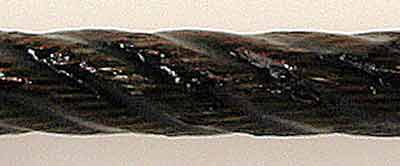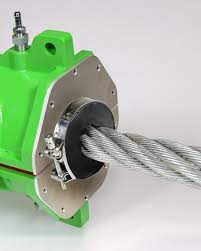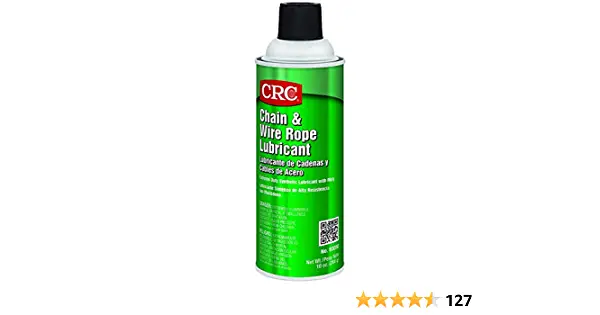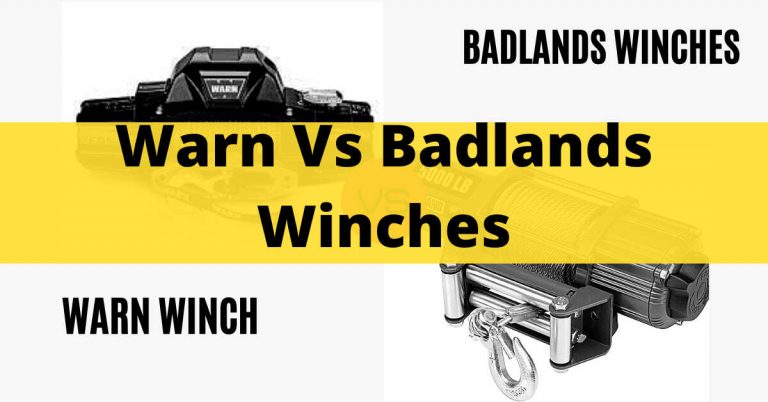How To Lube Winch Cable – Importance, Maintenance & Best One In 2023
Winch cables don’t last forever; when they fail, the consequences can be disastrous and expensive. It is why maintaining and inspecting cables is crucial.
Although factory-applied lubricant is added to most winch cables (also known as “wire rope”) during manufacturing, it is only sufficient for the initial storage of the cable and the first few years of its service life.
Get yourself some high-quality lubricating oil first before you can lubricate the winch wire. If you don’t understand it, the entire procedure will be a painful waste of time.
- A Cleaning Brush:
- Cleaning The Wire Rope:
- Applying The Lube:
- Should You Lubricate A Winch Cable:
- Winch-Cable Lubrication Is Important:
- What Is The Best Spray Lube for Winch Cables:
- How To Maintain Winch Cable:
- Importance Of Lubing Your Winch:
- Lubrication:
- Importance:
- How To Clean Your Winch Cable:
- Frequently Asked Question:
- Final Thoughts:
Which lubricant should you pick right now? You should, in my opinion, opt for the standard lubes created for lubricating wire ropes or similar forms of cable used in winches.

Many users in the USA usually utilize multipurpose oils as their lubricant. The statement is entirely incorrect.
Despite getting into the core, these oils won’t survive there because they won’t adhere to the surface for a long enough period.
Nevertheless, it is useless to use extra-thick grease lubricants. Because they will undoubtedly be unable to penetrate your winch cable’s surface; if they were unable to do so, they would not reach the core. Consequently, the goal isn’t being achieved.
However, here’s to a quick process that will direct you to the lubrication of your winch cable.
A Cleaning Brush:
A good-grade lubricating oil (try to grab a moderately thin one. Don’t go for too thin ones whatsoever)
There’s that. Let’s get to the process… 😀
Cleaning The Wire Rope:
Don’t panic. I’m merely using the term “wire rope,” which is how the winch cable is known in many other nations. However, to maximize the benefits of the lubricant, you must first gently clean the winch cable.
The situation will worsen since it can contain a foreign substance that could react with the lubricant that has been administered.
This issue will become even more severe in the case of fiber-forming ropes. The worst-case situation, though, is that.

Most winch cables are constructed from steel or materials resembling steel. In the beginning, apply any cleaning solution to the winch cable’s surface, such as water or absorbent material.
Utilizing a cleaning brush, you can apply it. The cleaning agent will be evenly dispersed over the surface in this manner. The cable should then soak after that.
Do not consider starting the following step until the cable is thoroughly soaked.
Applying The Lube:
It’s time to start the primary procedure, which involves administering the lubrication, assuming that the wire has completely dried up.
You should choose your lube carefully, as I’d like to remind you. Avoid choosing ones that are too thick or too thin.
For this stage as well, you can utilize the same cleaning brush. The brush’s primary function is to spread the lubricant materials uniformly throughout the surface as you move it across.
And yet another is that the lubricant molecules can successfully enter the wire’s core.
You can immediately start using the winch after applying lubricants. It won’t require any additional time to soak.
That’s there! The most straightforward lubricating tip you will ever find elsewhere on the internet was this one.
There are other additional methods, though, that you can use. But this one is the easiest and most precise.
Should You Lubricate A Winch Cable:
A statement states, “Your winch cable’s lifespan is directly proportional to how well you maintain it.” As is, if you neglect to provide your winch cable with correct maintenance, it won’t operate as effectively no matter what is thrown at it.
Right now, you may be asking how to keep it maintained. Providing it with enough lubricant is a simple solution. Consequently, the response is unquestionably positive.
However, the winch cables must first be lubricated entirely as the core of the winch wire is susceptible to rust and corrosion. The central portion wears down over time despite being greased during manufacturing.
The most ironic thing is that it won’t be easy for you to keep an eye on this vandalism. The cable will appear to be fine on the outside, but it will deteriorate on the inside over time.
Lubricating the winch wire is a necessary duty. If you don’t, you might not be able to maintain a constant performance rate. To be completely honest, nobody wants that.
Winch-Cable Lubrication Is Important:
There are two reasons why winch-cable lubrication is important
- It reduces friction between the individual wire strands.
- It protects against corrosion.
1. Ideal Winch Cable Lubricant:

When applied, the best winch cable lubricant should be thin but immediately solidify into a more sticky form, drive away moisture, and offer corrosion protection.
Additionally, the lubricant must be transparent in color. It makes checking the cable in the future for potential fraying simpler.
Nevertheless, the effectiveness of your winch cable maintenance will directly affect how long it lasts.
If done correctly, cable service life should more than double.
2. Core Importance:
Winch cables frequently experience a core failure. It is because the inner part of the wire is frequently corrosive and poorly lubricated.
Making situations worse Since core corrosion is difficult to observe and monitor, rust avoidance is crucial because it is impossible to predict when the rope will break.
Rust prevention is crucial since core corrosion is difficult to observe and monitor. There are two varieties of cable lubrication: internal and external. For the reasons listed above, lubricate a winch cable using a high-quality penetrating oil.
However, it should be noted that excessively thin lubes (such as most multipurpose oils) tend to dry rapidly and are not the best choice for winch-cable maintenance.
Contrarily, lubricants that resemble grease are typically too thick to permeate the cable’s core fully. They also have a propensity to accumulate dirt, which causes additional maintenance concerns.
Most winch cables break internally. It is because the improper lubrication cannot reach the cable’s core.
Even though the cable appears to be in good condition on the outside, corrosion and rust may have seriously compromised the inner core.
Because of this, it’s crucial to use a specialized winch cable lubricant that thoroughly shields the cable from the inside out.
What Is The Best Spray Lube for Winch Cables:
Choosing the right lube is one of the most crucial factors in giving your cables the best lubrication. You won’t get the desired perfection if you choose a subpar option.

However, attempt to consider its density to get the best lubricating oil. Try to avoid it if it’s too dense. Avoid pursuing it if it is fragile.
Grab that lubricant only if it is only somewhat thick and between thick and thin.
Additionally, try to buy the spray lube so that you won’t need the cleaning brush to utilize it. Spraying the lube causes it to spread out over the surface automatically.
Here’s to some trustworthy lubricants that you can try-
- Lubegard Wire Rope Lubricant
- Silver Streak Wire Rope Lubricant
These two products are both of identical quality. You can choose between these two.
How To Maintain Winch Cable:
- The primary step in maintaining a winch cable is to apply a proper amount of lubrication to the cable.
- You can continue to maintain it by adding new standards, though. The next phase is here.
- Look over every thread point carefully, and tighten any that are loose.
- After each operation, clean the cable.
- Rust and corrosion may develop inside the cable’s core, even though this is difficult to check. Even if you can’t see the corrosion, keep it maintained and constantly check this.
- Examine all electrical connections to the battery and other power sources.
- You can maintain your winch wire in this manner to extend its useful life.
Importance Of Lubing Your Winch:
The fundamental research in a winch is in friction, lubrication theory, and lubrication technology.
The proper use of extreme pressure additives in the oil, the popularization of synthetic lubricating oil, and the study of elastic fluid dynamic pressure lubrication theory can increase work efficiency while increasing bearing capacity.
Lubrication:
- The worm should be completely submerged in oil using winter gear oil or saturated cylinder oil to lubricate the gear reducer. The oil in the reducer is changed once a year.
- Change the oil every two years, and the main shaft and output shaft ends of the reducer’s bearings should be frequently replaced or supplemented with no. 4 calcium base grease.
- Lubricating oil should be applied each time the open gear is started.
- The thrust ring between the two gears on the output shaft of the reducer and the active gear shaft sleeve should be filled with lubricating oil before each start. The remaining lubrication parts should also be lubricated.
Importance:
Correct and timely lubrication is crucial for winches because the relative sliding surface under pressure would be damaged if it is in dry friction.
Aside from improving the tooth surface bearing capacity, good lubrication plays other crucial roles, such as preventing tooth surface gluing and abrasion, reducing tooth surface wear, and absorbing the shock and vibration of gear transmission.
And among winch users, many are unaware of the crucial function of lubrication, fail to give it due attention, use winch lubrication oil carelessly, and fail to meet usage criteria.
Poor lubrication is a common cause of accidents in handling winch failure.
How To Clean Your Winch Cable:
Run the winch line through a pail of water that has been filled with mild soap. Pushing together will cause the rope to stretch and the braid to loosen as it passes through the water.
It will assist in dislodging debris and grit from the fibers. Up until the entire length of the line has been cleaned, keep running the winch line through the water.
If you long for some off-roading but cannot get out onto the tracks, you might be able to satisfy your fix by planning some 4WD maintenance and checks.
The electric winch is our first focus for easy at-home maintenance because it is commonly mistreated and disregarded despite being continuously exposed to the outdoors.
The job of winching is challenging. A winch is your best friend in the world, even if you don’t use it very often during the year, since it is there for you when you need it most.
Additionally, it is not benefited by all the time spent outdoors in the weather. One straightforward maintenance you can carry out at home without additional tools or training is unfurling and cleaning your winch rope.
The difference between steel wire and synthetic rope in your winch is essential here. Nowadays, the latter is typical. It is now far safer, lighter, easier to control, and less expensive.
Whatever you have, a fast birthday bash in the driveway is advantageous to both of you.
1. Unroll
It is a simple process to first roll the wire of the 44 winches off the drums. While you could shift into neutral and pull the wire out on your own, it would be more advantageous to activate the winch and run the line out while it is powered.
It’s an excellent opportunity to make sure the winch is working correctly and start the gear oiling. The rope is now free, and you may start inspecting it for damage.
Slight fraying of synthetic rope is okay, but broken strands or significant kinks in the line call for replacement. When steel wire develops significant kinks, corrosion, or fraying, it’s terrible news.
2. Synthetic Rope Clean-Up:
The primary competitor of synthetic rope is ultra-high molecular weight polyethylene (UHMWPE), which is usually manufactured and marketed under the name “Dyneema.”
In other words, it’s an incredibly distinctive plastic created to have a tremendously high tensile strength when pushed in a straight line.
Despite their durability, individual fibers can be torn by friction from running over pebbles and uneven terrain or by just getting soiled and dirty from daily life.
You should clean the rope of any dirt or other potentially harsh impurities to prevent long-term harm.
3. Tidying Up Steel Wire:
Cleaning steel wire is another story. Get the wire brush out and clean your cable if it is foul. As much as you can, try to delete. Compressed air can be helpful for this task as well.
If you wash it in soapy water, let it completely dry before putting it back on.
There are two schools of thought regarding lubricating and greasing steel wire.
Others choose not to do it since it could make the cable draw and retain too much gunk, while some people do it to prevent corrosion. If you decide to go through with it, use a material that dries quickly and isn’t sticky.
Frequently Asked Question:
1. Should Wire Rope Be Lubricated?
The same rules for lubricating other working machinery apply to wire rope because it bends around hoist drums and sheaves and will corrode and wear out like any other metal.
A rope’s strands and wires must be able to move unrestrictedly for the rope to be effective.
2. What Is Cable Lube Made Of?
Most lubricants contain 80 to 90% water and various chemicals that provide them lubricity.
Wax, polymers, silicone, fluorinated ethylene propylene (FEP), and other substances specially prepared for particular uses are examples of lubricant additives.
3. Can You Use Wd40 To Lube The Clutch Cable?
WD-40 or any other penetrating oil is NOT advised since some cables have a slick inner sheath that will become clogged if exposed to solvents or harsh chemicals. Regular engine oil works if you don’t have the proper aerosol product.
4. Can I Use Chain Lube On Cables?
Ordinary and cable lube explicitly designed for dirt bikes is acceptable. What you need is a silicone spray.
Keep away from all-purpose, general-purpose, and unrelated oils like motor oil. For your cables, avoid using chain lube.
Final Thoughts:
Winch cables have a certain lifespan; when they break, the results can be devastating or expensive. It makes maintaining and checking wires so important.
Friction, lubrication theory, and lubrication technology are the main research areas in winches.
The study of elastic fluid dynamic pressure lubrication theory, the proper application of extreme pressure additives in the oil, and the widespread usage of synthetic lubricating oil can boost work efficiency while enhancing bearing capacity.
References







